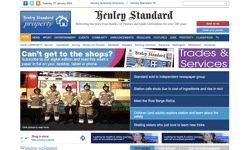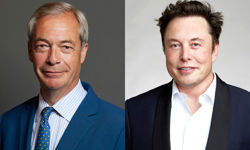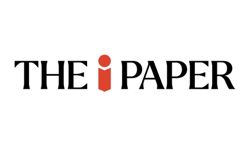The Editors Forum, the annual global event for chief editors and other senior newsroom personnel, has just announced its first confirmed speakers, including: Simon Kelner, Editor-in-chief of the Independent in the United Kingdom; Scott Klein, Editor of News Applications for ProPublica in the United States; Mathias Müller von Blumencron, Editor-in-chief of Germany's Der Spiegel; Jim Roberts, Assistant Managing Editor of The New York Times; and many others.
The World Editors Forum, along with the World Newspaper Congress and Info Services Expo, are the annual global summit meetings of the world's press. More than 1,200 chief editors, publishers, managing directors and other senior newspaper executives are expected to attend the events, to be held from 12 to 15 October in Vienna.
Other confirmed speakers for the World Editors Forum include: Luca de Biase, Editor-in-chief of Nova24, a technology publication of Il Sole 24 Ore and author of "Turn the Page" on the future of journalism; Daniel Domscheit-Berg, founder of OpenLeaks: Matthew Eltringham, Assistant Editor for Interactivity and Social Media Development at the BBC; Alexandra Föderl-Schmid, Editor-in-chief of Der Standard in Austria; and Tom Kent, Standards Editor and Deputy Managing Editor at The Associated Press.
Sessions for the Editors Forum include:
• Paywalls, from the newsroom perspective. This is the year of the online paywall, with many newspapers hoping they might revolutionize online business models. Are paywalls the answer, or is there another way that editors can help their newspapers make money online? What effect do they have on the newsroom: do they change the way editorial staff work? What advice can editors at newspapers with paywalls give to their colleagues who intend to follow them down this path?
• How to build a community around your newspaper. From Twitter and Facebook, to crowdsourcing and gathering readers’ photos, newspapers now have abundant ways to interact with their readers online. How can editors best create communities around their publications? And how can they best benefit from what these communities have to offer?
• The steps towards a successful tablet application. Tablet devices have been hailed for their potential for their new story-telling and delivery capabilities, but they come with many questions and challenges. How do you maintain the paper’s integrity in such a different format, while offering readers a new and exciting experience they'd be willing to pay for? Is new content needed? How do you allocate resources in the newsroom, and how closely do developers work with journalists? The session will be accompanied by an "App Showcase" that examines some of the best mobile and tablet applications.
• WikiLeaks: the whistleblower. Wikileaks holds a nebulous position as "the source that is not a source," building a buffer between the leaker of information and news media. How should newspapers treat such a source, that makes its own demands? Is WikiLeaks a positive or negative influence on quality journalism?
• Media in the aftermath of revolution. The protests that have led to political change in the Arab world have had a profound effect on the press and wider news media. What role did the media play and what lessons can be learned from this? And what have been the most significant changes in the media landscapes of the countries involved?
• What content should print newspapers focus on in order to survive and thrive? Print is still where newspapers make most of our money, despite an increasing focus on digital. As the printed product encounters more and more challenges from different platforms, how can editors ensure that it not only survives, but flourishes? What sort of content is right for print? Is a shift to concentrating on opinion and analysis the answer?
• Innovation in print. Innovation isn’t just in the digital realm. Ten speakers, five minutes each: each speaker will tell the audience what they have been doing innovatively in print.
• Integration: the latest experiments in a multi-platform age. Different degrees of integration exist in newsrooms around the world. What’s the right level? Is print-digital convergence substantially more complicated now that multiple digital platforms exist, and does this mean that those newsrooms which have already integrated must now go a step further?
• Looking to the future. What innovations and developments are going to have the most impact on quality journalism in the coming months?
The events, organised by the World Association of Newspapers and News Publishers (WAN-IFRA) and hosted by the Austrian Newspaper Association (VÖZ), will be accompanied by a rich social programme, tours, meetings with local and international political, business and cultural leaders, and more.










